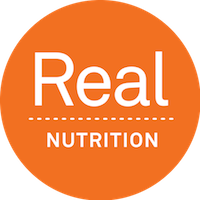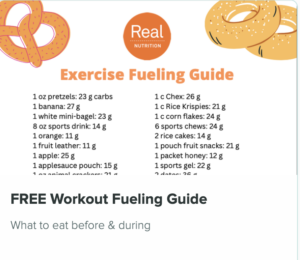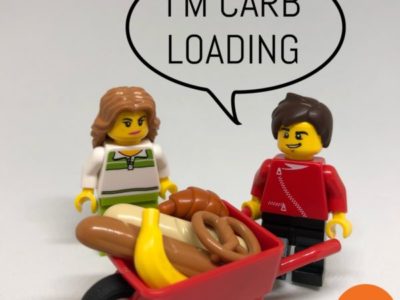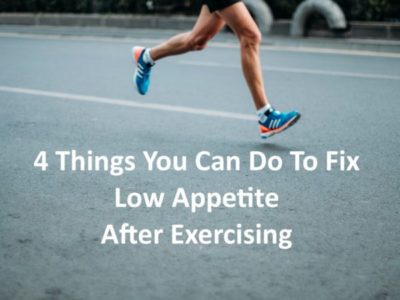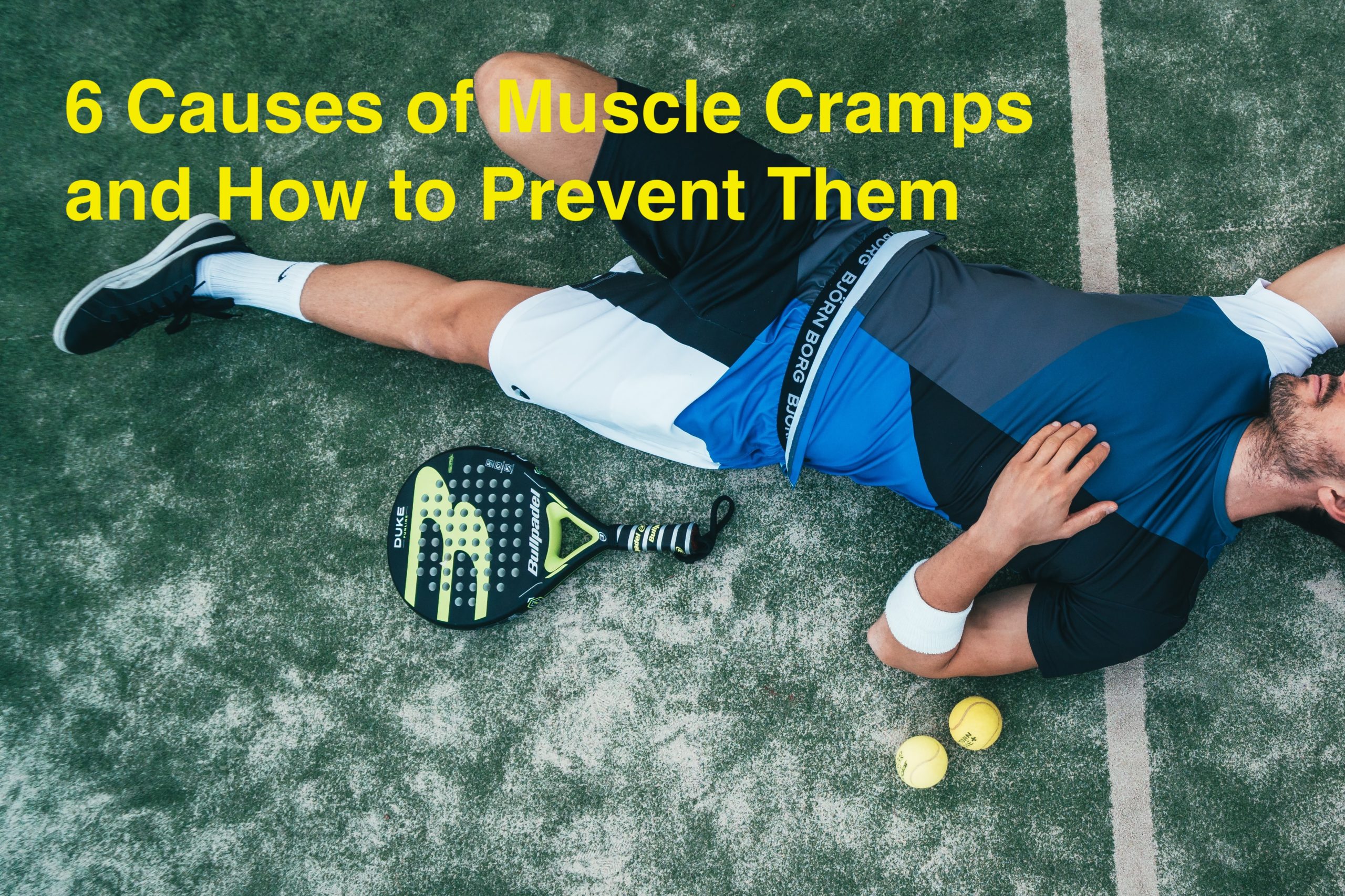
Cramping is the worst! Many people must stop their workout or drop out of their competition when cramping strikes. Why does it happen? How can you treat it? And how can you prevent it from happening again? Read on to learn more about muscle cramps!
What causes muscle cramping?
There are many theories. Causes are likely multifactorial. You may not get cramps for one specific reason, and it may not be the same reason every time. By understanding a bit about how muscle cramping can occur, you may be able to troubleshoot your own cramps to help prevent them in the future.
These are the predominant theories on cramping based on current available evidence:
- Dehydration and electrolyte imbalance theory
- Altered neuromuscular control theory
- Fatigue
- Glycogen depletion
- Central nervous system (transient receptor potential receptor agonists)
- Medications/supplements/caffeine
The dehydration/electrolyte imbalance theory is probably the most popular one.
How many times have you heard someone ask for water or a banana when they are cramping? They are usually assuming they need hydration or electrolytes. However, a banana for the potassium is not really going to be helpful. If cramping is occurring because of dehydration, sodium is the main electrolyte that needs replacing. Potassium, magnesium and calcium are all lost in sweat at much lower rates than sodium. Be sure you have a solid hydration plan by checking out our Perfect Hydration and endurance fueling courses, or talking with our dietitian for personalized nutrition support.
Dehydration or electrolyte imbalance could cause cramping, as the muscle needs electrolytes to contract. Dehydration can also lead to fatigue, which can potentially cause cramping.
The altered neuromuscular control theory is an cramping theory.
It suggests there is more to cramping than just hydration/electrolytes.
Since cramping often occurs toward the end of exercise (hence the fatigue theory), in active, shortened muscles, there may be nervous system alterations and over-excitation of the alpha motor neuron, causing cramping.
Fatigue can also cause muscle cramps.
When thinking about fatigue, it may cause cramps because the cramping often occurs if someone is deconditioned (thus fatiguing early), and in events that are longer in duration or harder in intensity. Lack of sleep can also contribute, as well as heat and humidity. Being well-conditioned and ready for your event may help prevent cramping.
Glycogen depletion is another way cramps happen.
Glycogen is a storage form of sugar (energy) in your skeletal muscles and liver. As you exercise, glycogen gets broken down and used to fuel muscle contractions and keep blood sugar stable. For long events over 90-120 minutes, glycogen stores can become depleted, especially if you do not take on more fuel or eat an insufficient amount of carbs during the event. If muscles run out of fuel, they may cramp. Be sure you fuel properly but downloading our free fueling guide, taking our on-demand endurance fueling and carb loading courses, and/or talking with our sports dietitian. Always have a race-day fueling and hydration plan that you’ve practiced in training.
Central nervous system (transient receptor potential receptor agonists)
This type of cramping can happen when your central nervous system gets fatigued. It may be a result of genetic predisposition, underlying medical conditions, a history of prior cramping, or stress. This is the theory behind why mustard, pickle juice, spicy peppers, etc. may help cramping. If the receptors in the mouth get a signal that something strong is being ingested, it may disrupt the nerve signal that is telling the muscle to cramp.
And finally, some medications, supplements, and caffeine may cause cramping.
If you suspect any of these in your own cramping history, consult with your doctor before making any changes to make sure it is safe and right for you.
Cramping may be more likely to occur in certain circumstances.
Risk factors to muscle cramping:
- Heat/humidity
- Intensity
- Duration
- Older age
- Inadequate conditioning
- Lack of sleep
- Contraction of muscle (in short position)
- Decreased energy availability in muscle (glycogen)
- Repetitive muscle exercise
- Prior cramping
- Muscle damage or injury
- Pain
- Faster finishing time than expected
Some of these risk factors are controllable. If you are prone to cramping, try to identify which risk factors may be playing a role. Then try to alleviate or manage them the best you can. For example, if you cramp when it is race day but not during training, it may be because you are going faster or more intensely than usual. Train to condition your body to tolerate it, or slow down your pace on race day to one you can manage.
How to treat muscle cramps
- Stretching and stopping the activity often cures cramps. Try gentle stretches and massaging. If you suspect underlying dehydration, hyponatremia, heat stroke, or anything serious, seek medical care immediately.
- Identify the underlying cause and address it. Think about the context of the day. Did the cramp occur when you were tired? Not quite in shape enough for the event? Did you eat and drink appropriately? Were you overheated? Play detective to troubleshoot what went wrong so you can prevent it next time.
- Transient receptor potential receptor agonists Trying pickle juice, mustard, etc. may possibly help if you can manage it. Some people find it makes them feel worse (nauseated). Don’t ingest in large amounts. You just need enough to stimulate some receptors in your mouth.
How to prevent muscle cramps
- Track to see if there are patterns to your cramping
- Adequate fueling and carb loading as needed
- Adequate hydration and electrolyte replacement (sodium—not really magnesium or potassium)
- Adequate training status
- Omit any possible triggers where possible (supplements, caffeine)
Subscribe to our newsletter!
Check out our amazing nutrition resources, including on-demand courses, free downloads, and webinar replays.
- Nutrition for Climbers
- The Ultimate Guide to Useful Sports Supplements
- Ditch Diets and Become an Intuitive Eater
And be sure to follow us on Instagram!
Book an appointment with the dietitian
~This is general information only and not nutrition or medical advice. Always speak with your healthcare professional before undergoing any diet or lifestyle change.
References:
Miller, et al. (2022). An evidence-based review of the pathophysiology, treatment, and preventions of exercise-associated muscle cramps. Journal of Athletic Training, 57(1):5-15. Doi: 10.4085/1062-6050-0696.20
https://www.mysportscience.com/post/prevention-and-treatment-of-muscl-cramps
https://www.mysportscience.com/post/what-causes-muscle-cramps-in-exercise
